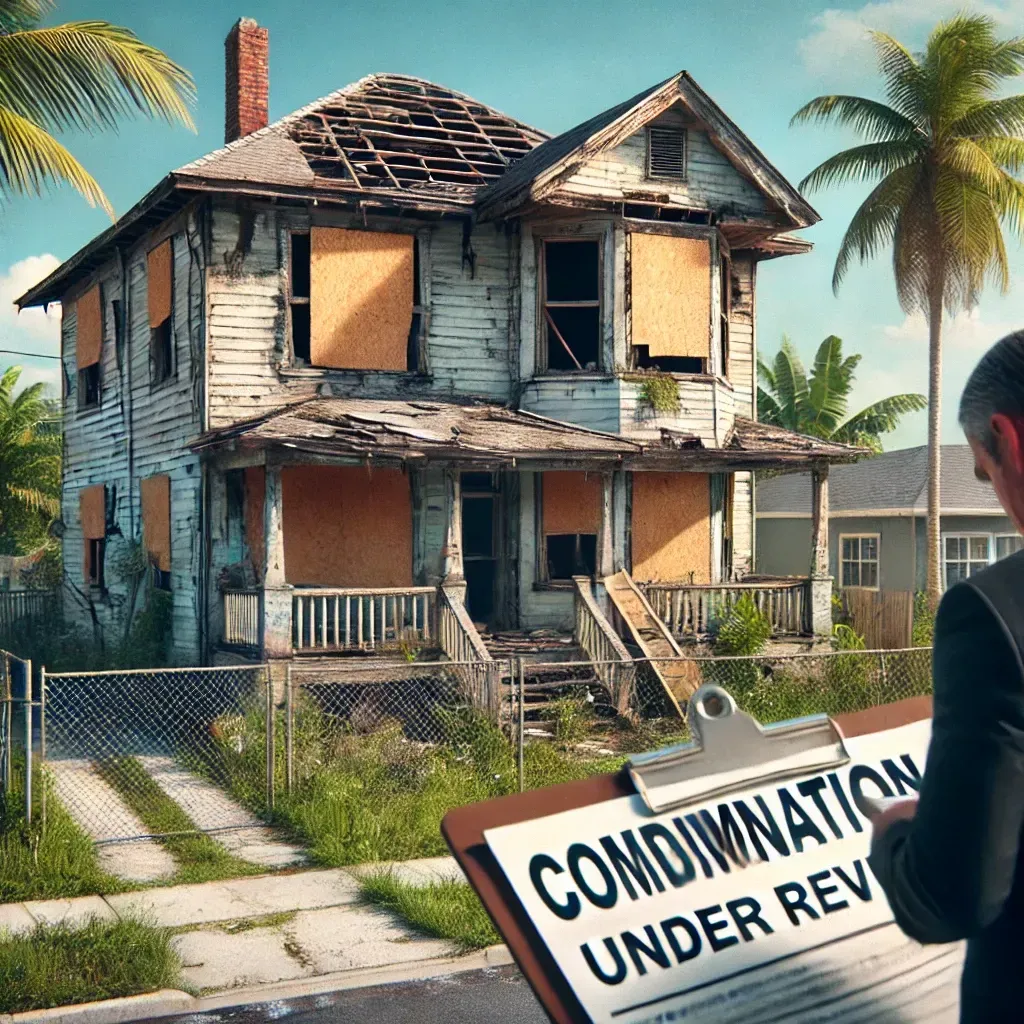
Understanding the Condemnation Process of Homes in Florida
In Florida, properties can be condemned when they fail to meet safety and structural standards as assessed by local government inspectors. This often reflects a deeper story, revealing how neglect can lead to a house's downfall. The journey from a well-maintained home to a condemned structure is marked by abandonment, decay, and legal intricacies, impacting not only the property owner but also the community at large. Understanding how a house becomes condemned in Florida is essential for homeowners, investors, and community members alike.
Defining a Condemned House
A condemned house is one that has been deemed uninhabitable due to serious safety issues or structural failures. These properties can become hotspots for criminal activities, including vandalism and squatting, which further deteriorate the community’s safety and reputation. The process of condemning a house involves detailed inspections and a series of legal proceedings that can be costly and time-consuming.
The Condemnation Process in Florida
Florida’s unique climate poses various risks to properties, from hurricanes to sinkholes, which contribute to the increase in condemned houses. In addition to natural disasters, many homes suffer from neglect due to the transient lifestyles found in some communities, leaving them susceptible to degradation and eventual condemnation.
How to Tackle Condemned Properties
Dealing with condemned properties can be a daunting challenge. Here are effective strategies for various stakeholders:
For Homeowners
1. Immediate Assessment: If your property is at risk, hiring professionals to assess the damage is crucial. Understanding the potential repair costs can guide you in deciding whether rehabilitation is feasible.
2. Regular Maintenance: Focus on routine upkeep to prevent further deterioration.
3. Explore Financing Options: Look into renovation loans or government assistance to help cover repair costs.
For Investors
Condemned houses can yield substantial returns if approached diligently.
1. Conduct Thorough Research: Examine the property’s history and condition before making an offer.
2. Develop Renovation Plans: Detail the necessary repairs to pass inspections for resale or occupancy.
3. Engage Professionals: Collaborating with experienced contractors and inspectors ensures quality repairs are made.
For Sellers
If you plan to sell a condemned house:
1. Disclosure: Be upfront about the property’s condition to avoid legal complications later.
2. Strategic Pricing: Adjust your listing price to reflect necessary repairs and potential buyer negotiations.
For Buyers
Purchasing a condemned house can offer a chance at bargains, but comes with risks:
1. Thorough Inspections: Hiring a professional inspector prior to purchasing can unveil hidden hazards or costly repairs.
2. Budgeting for Repairs: Prepare a realistic budget for renovations, including an emergency fund for unexpected expenses.
For Community Members
Condemned houses can signify deeper issues within a community.
1. Stay Informed: Be proactive by reporting unsafe properties to local officials for necessary inspections.
2. Participate in Community Cleanups: Engage in local volunteer efforts to rehabilitate neglected properties, fostering a sense of community.
3. Raise Awareness: Educate fellow residents on the implications of condemned properties and advocate for solutions.
Conclusion
Condemned houses can be perceived as nightmares for homeowners and risky ventures for investors. However, with the right approach, they can also represent opportunities for rehabilitation and community improvement. Understanding the process of condemnation in Florida will enable individuals to address the issue effectively. Whether you are a homeowner facing condemnation or an investor seeking opportunities, knowledge of this unique market is crucial for navigating potential pitfalls.
For further insights into transforming neglected properties into community assets, visit Landforcashmoney.com. While navigating the complexities of condemned houses may be challenging, with determination, proper planning, and collaboration, these houses can regain their value and significance in our neighborhoods.



